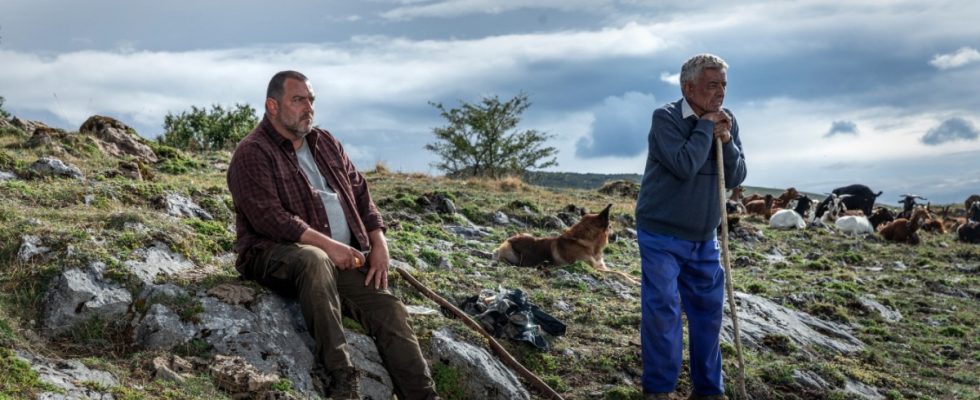When it comes to their rides, even the toughest guys soften up and pet, groom and scrub their horses. Only in Galicia do they wrestle with them: at the annual spectacle “Rapa das Bestas,” men drive horses from the mountains into the valley to shear and mark them, to tame them and impose their will on them. It is a test of strength between humans and animals.
Men wrestling with horses: These are the images that begin Rodrigo Sorogoyen’s feature film “As Bestas / Like Wild Animals,” which premiered at the Cannes Festival and won nine awards at this year’s Goyas in Spain. The animal fights are both a masculinity and a rite of passage. But the horse conquerors who live there also wrestle with other men: with the French teacher Antoine (Denis Ménochet), for example, who moved here with his wife Olga (Marina Foïs) and grows organic vegetables on a small farm. The emigrants appreciate the simple life in the region; Their direct neighbors, two middle-aged bachelor brothers, have always lived here – and feel left behind.
Goodness and a perfect marriage? This fuels aggression
The French, who they see as arrogant, are a thorn in their side. When a wind turbine is to be built and the newcomers do not want to give up their land for it (and thus question the whole project), the reluctance turns into open aggression. You can understand both sides: This deal would change everything for the long-established people; they could use the money to build something new. Antoine and Olga, on the other hand, have decided to live in harmony with nature; they don’t want any change. While some come across as rough-and-tumble hillbillies, others perhaps exaggerate their good nature and perfect marriage a little too much. This neighborhood constellation offers explosive material.
And indeed it begins with perfidious attacks that become more and more violent over time. The story of this frighteningly intense drama is based on true events, it also takes some unexpected turns – which should not be revealed here. This sets “Like Wild Animals” apart Backwoods-Film, a subgenre with typical horror-in-the-province plots.
The Spaniard Rodrigo Sorogoyen also co-wrote the script; so far he has mainly directed television series. With this film he is able to establish himself as a cinema director, he finds powerful images and expands the arc of suspense ever further: sometimes the neighbors sneak around the house at night, other times there is a kind of showdown at the gas station. And then suddenly the tomato crop is ruined, someone has poisoned the water.
Men who wrestle with men: Denis Ménochet is great in the role of the newly arrived farmer; he has found a strong opponent in his Spanish counterpart Luis Zahera. Ménochet became known with Tarantino’s “Inglourious Basterds”, where he stood up to Christoph Waltz as the stubborn farmer. Since then he has shuttled between Europe and Hollywood, most recently he was seen as a gay film director in François Ozon’s Fassbinder homage “Peter von Kant”. Marina Foïs (“In the Best Hands”, “Poliezei”) is no less impressive as Olga. Over the course of the film she plays herself more and more into the foreground and becomes more and more resolute. Because no matter how corrected men’s anger is, in the end women have to suffer the consequences of these masculinity battles.
As best as, E/F 2022 – Director: Rodrigo Sorogoyen. Book: Isabel Peña, Sorogoyen. With: Marina Foïs, Denis Ménochet, Luis Zahera. 137 minutes. Prokino, theatrical release: December 7, 2023

